
Subscribe
eNewsletter

Ready to get certified?
Free CDCES Coach App
Download
Free Med Pocket Cards

eNewsletter

Free CDCES Coach App
Free Med Pocket Cards
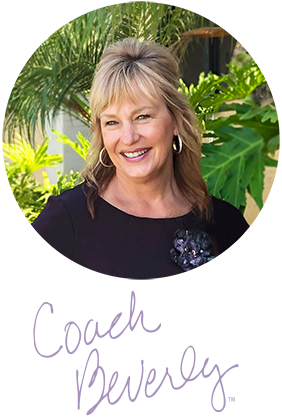
With the emerging sunshine and nature in bloom, it feels like a personal invitation to awaken from the winter slumber and take an outdoor stroll or enjoy the simple pleasure of planting. To celebrate Earth Day on April 22nd, we highlight how to incorporate native plants into daily life and support healthy ecosystems. Our nutrition expert explores how yogurt decreases the risk of type 2 diabetes and dives into the science of this century’s old favorite food. We discuss the importance of screening for undetected liver disease to provide early and focused treatment to prevent progression to liver failure. In addition, we feature a new FDA approved medication that treats liver disease and fibrosis with a list of diabetes medications that also offer effective treatment. The new over-the-counter sensor, Stelo, is FDA-approved and should be available for purchase in late summer. We examine its features and limitations. Our first “Connect with Coach Beverly” was a big hit, so we are offering it again in April. You are invited to submit your questions and join our lively discussion. For our Question of Week Section, we ask, “Why don’t the CGM and meter reading match? And “What is the best treatment for steatosis?” Test your knowledge and prepare for exam success. We are thrilled to offer our Free Webinars on CDCES and BC-ADM Prep, plus a bunch of other great programs. Hope to see you there. |
Sending notes of joy and health, Coach Beverly and Bryanna |
Featured Articles
Upcoming Webinars
Upcoming Events – See the complete calendar listing
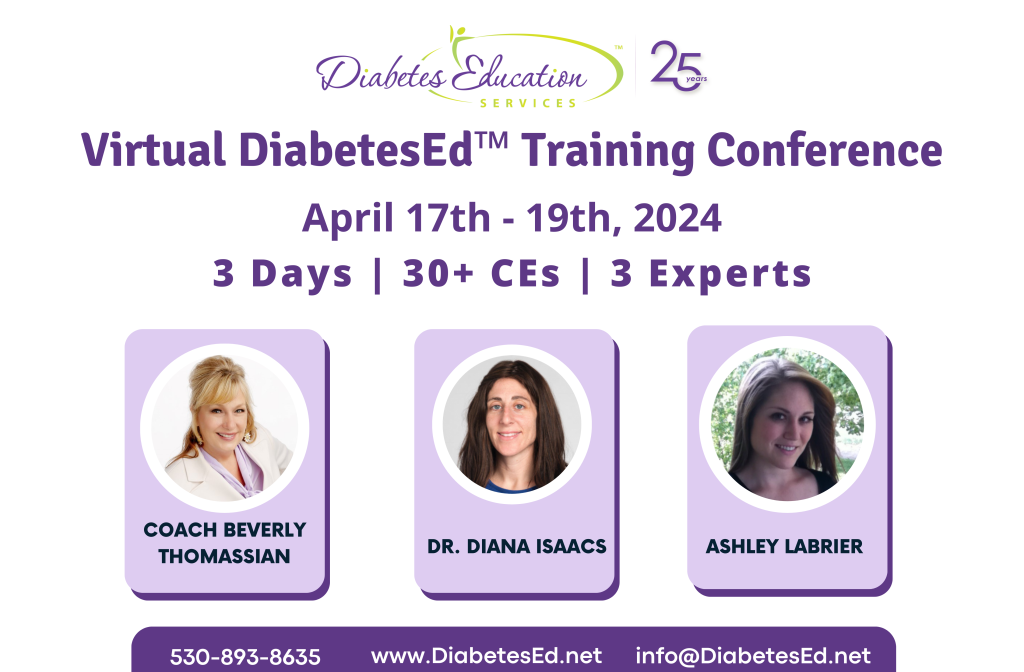
Join Coach Beverly and Team for two and a half days of knowledge-sharing, fun, and “aha” moments for our Virtual DiabetesEd Training Conference April 17th – 19th, 2024.
Attendees will leave this conference with new tools and a refreshed understanding of the latest advances in person-centered diabetes care. Our team highlights the ADA Standards of Care, medications, behavior change, technology, medical nutrition therapy, and more!
Our instructors co-teach the content to keep things fresh and lively.
Friend Discount: 3 or more only $449 per person. Email us at [email protected] with the name and email of each registrant to get the discount!
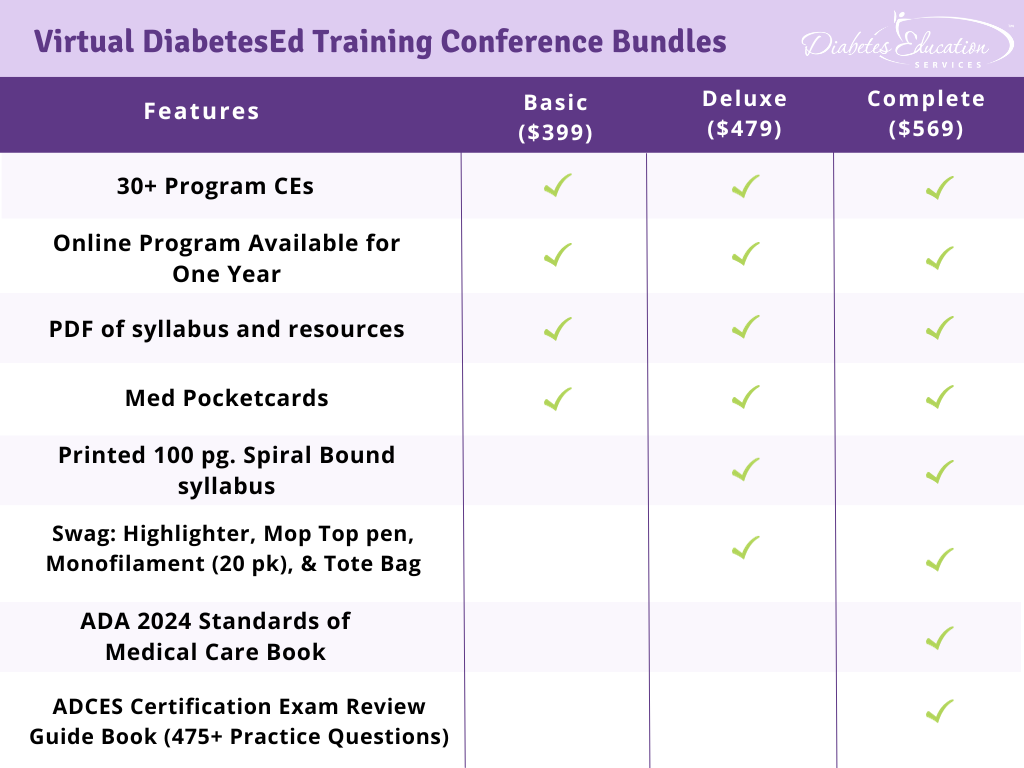
Accreditation: Diabetes Education Services is an approved provider by the California Board of Registered Nursing, Provider 12640, and our CPEU courses have received Prior Approval* from the Commission of Dietetic Registration (CDR), Provider DI002. Since our CPEU courses received Prior approval* from the CDR, these CPEU courses satisfy the CE requirements for the CDCES /BC-ADM regardless of your profession!
The use of DES products does not guarantee the successful passage of the certification exam. CBDCE and ADCES do not endorse any preparatory or review materials for the CDCES or BC-ADM exams, except for those published by CBDCE & ADCES.
Are you a diabetes health care professional or person with diabetes who is ready to get on track with your diabetes?
We want to encourage you to let your community know about an exciting research opportunity.
We are inviting people diagnosed with type 2 diabetes less than 5 years ago, who live anywhere in the U.S., with a most recent A1C of 7.5% or higher to click this link below to see if they qualify for the study.
If so, the Behavioral Diabetes Institute is conducting a research study examining how innovative new approaches to diabetes education might help to improve glucose outcomes and quality of life outcomes. Participants will be randomly assigned to take part in one of two different live, online, group education programs. Each group program will be lively and informative, and will meet once weekly for 5 weeks in a row.
Also, half of the participants will receive a continuous glucose monitor and free testing supplies.
To find out more and see if you might qualify, click below to apply. Or for more information, email them at [email protected] or call us at 858-336-8693.
For last week’s practice question, we quizzed participants on steatosis treatment according to ADA. 57% of respondents chose the best answer. We want to clarify and share this important information, so you can pass it on to people living with diabetes and your colleagues, plus prepare for exam success!
Before we start though, if you don’t want any spoilers and haven’t tried the question yet, you can answer it below: Answer Question

Question: Up to 70% of people with diabetes have steatosis. Those at higher risk of moving to steatohepatitis include individuals with prediabetes and diabetes who also have cardiometabolic risk factors.
According to ADA Standards, which of the following is an accurate statement regarding treatment of liver disease in diabetes?
Answer Choices:
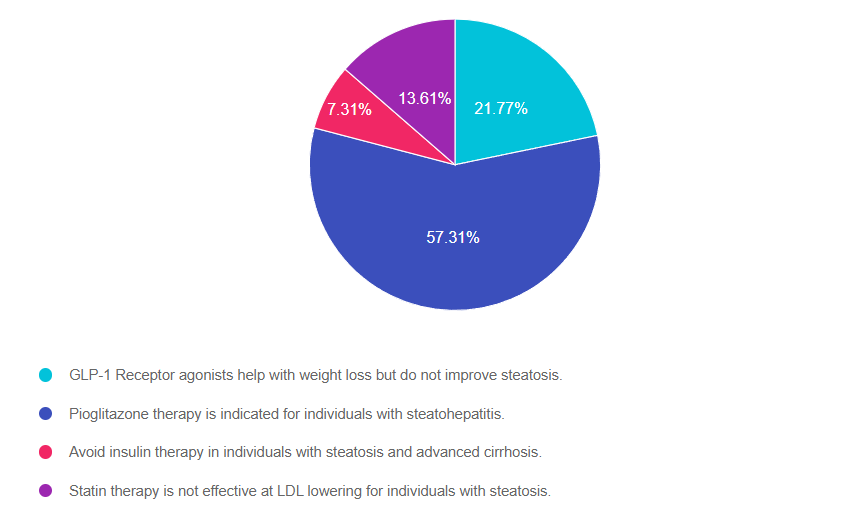
Common Native Plants in the U.S.
Answer 1 is incorrect. 21.77% chose this answer. “GLP-1 Receptor agonists help with weight loss but do not improve steatosis.” This juicy answer is tempting, but it is not the best answer. GLP-! RA’s, lower blood glucose levels and they also promote significant weight loss. This results in less glucose toxicity and a decrease in hepatic fat storage. Plus, they decrease the risk of cardiovascular disease which is co-associated with steatosis. See our Meds for Liver Disease Blog for more info.
Answer 2 is correct. 57.31% of you chose this answer. “Pioglitazone therapy is indicated for individuals with steatohepatitis.” Yes, this is the best answer. Pioglitazone (Actos) reduces blood glucose, and several studies demonstrate it is an effective treatment for steatosis and steatohepatitis. It also reduces the progression of fibrosis and cardiovascular risk. Since pioglitazone can cause fluid retention and weight gain, avoid using it in those with heart failure. See our Meds for Liver Disease Blog for more info.
Answer 3 is incorrect. About 7.31% of respondents chose this. “Avoid insulin therapy in individuals with steatosis and advanced cirrhosis.” With advanced cirrhosis, many of the oral medications may not be safe to use. The ADA recommends using insulin therapy, since it is safe and effective for people experiencing cirrhosis. Since people with cirrhosis are at higher risk of hypoglycemia, close monitoring of glucose levels is recommended. See our Meds for Liver Disease Blog for more info.
Finally, Answer 4 is incorrect. 13.61% chose this answer. “Statin therapy is not effective at LDL lowering for individuals with steatosis.” Lipid-lowering and antihypertensive meds need to be prescribed in people with steatosis as indicated. Statins are safe in individuals with steatohepatitis but avoid their use in those with decompensated cirrhosis. See our Meds for Liver Disease Blog for more info.
We hope you appreciate this week’s rationale! Thank you so much for taking the time to answer our Question of the Week and participate in this fun learning activity!
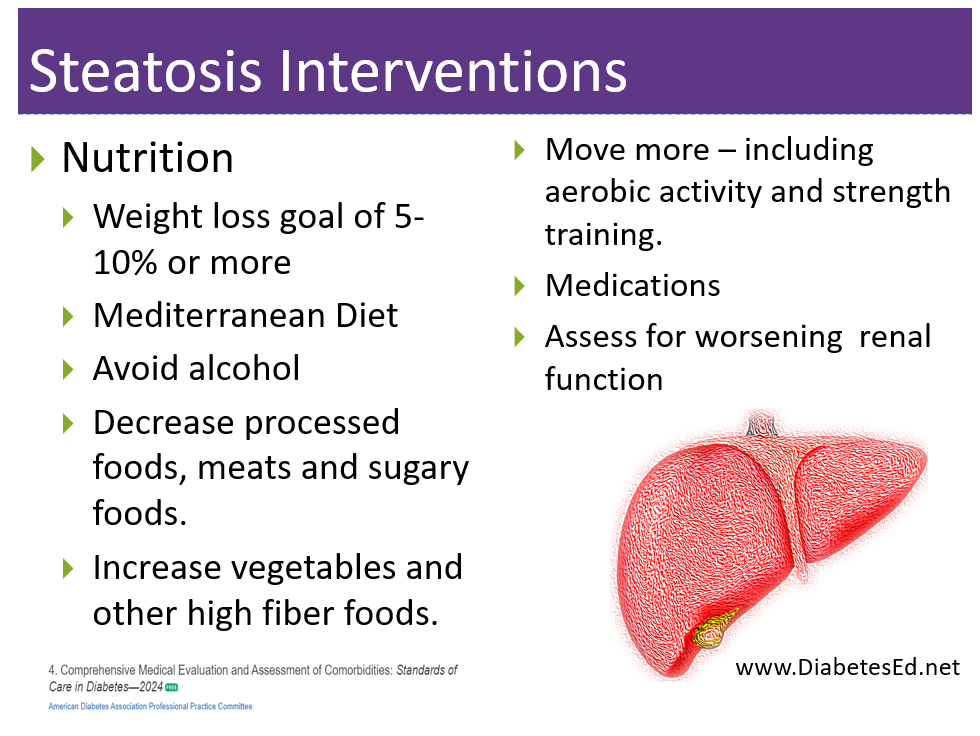

This course integrates the American Diabetes Association’s (ADA) Standard of Care on elements of a comprehensive medical assessment (Standard 4) of the individual living with prediabetes, diabetes, or hyperglycemia. Through case studies & real-life situations, we discover often hidden causes of hyperglycemia & other complications, such as liver disease, sleep apnea, pancreatitis, autoimmune diseases, fractures, & more. We delve into therapy for complicated situations & discuss management strategies for other conditions associated with hyperglycemia such as Cystic Fibrosis, & Transplants.
Objectives:
Intended Audience: These courses are knowledge-based activities designed for individual or groups of diabetes educators, including RNs, RDs, Pharmacists, Nurse Practitioners, Clinical Nurse Specialists, Physician Assistants, and other health care providers interested in enhancing their diabetes assessment skills and preparing for certification.
Instructor: Beverly Thomassian RN, MPH, CDCES, BC-ADM is a working diabetes specialist and a nationally recognized diabetes expert.
Accreditation: Diabetes Education Services is an approved provider by the California Board of Registered Nursing, Provider 12640, and our CPEU courses have received Prior Approval* from the Commission of Dietetic Registration (CDR), Provider DI002. Since our CPEU courses received Prior approval* from the CDR, these CPEU courses satisfy the CE requirements for the CDCES /BC-ADM regardless of your profession!
The use of DES products does not guarantee the successful passage of the certification exam. CBDCE and ADCES do not endorse any preparatory or review materials for the CDCES or BC-ADM exams, except for those published by CBDCE & ADCES.
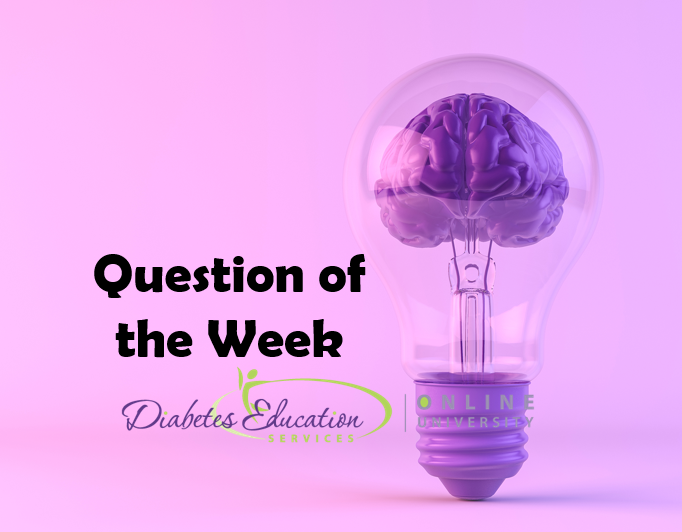
KS has type 1 diabetes, takes degludec and lispro for their diabetes medications and was recently prescribed CGM therapy to support glucose monitoring. At their visit they report sensor readings have been consistently higher than blood glucose readings.
What would be an important follow-up question to evaluate the potential cause of this difference?
“ReVive 5” breathes new life into our relationship with diabetes, bringing a fresh perspective to both the person with diabetes and the provider.
The ReVive 5 program is built on sound research from the Embark Trial and will revolutionize your approach to diabetes self-management education.
We have reassembled the Embark training team and created a resource binder of fantastic tools that we are excited to share with you in our ReVive 5 Diabetes Training Program. You are invited to join us to learn a step-wise, proven approach to addressing hidden barriers to diabetes self-management and glucose management.
You don’t need to be mental health expert or diabetes technology wiz to join this training or to integrate these new strategies into your daily practice.
ReVive 5 uses an integrated, evidence-based approach that provides health care professionals with a realistic 5-step approach to addressing the whole person, starting with emotional distress and incorporating a unique, but integrated approach to problem-solving glucose management difficulties.
Intended Audience: This library of critical information is designed for individuals or groups of diabetes specialists, including RNs, RDs, Pharmacists, Nurse Practitioners, Clinical Nurse Specialists, Physician Assistants, and other health care providers interested in staying up to date on current practices of care for people with diabetes and preparing for the CDCES or BC-ADM Certification Exams.
Can’t join live? That’s okay. Your registration guarantees you access to the recorded version of the series, along with podcasts and resources for one full year.
Accredited Training Program:
Join us to gain the confidence and learn the skills needed to support people with diabetes to move forward in their self-management and discover the expert within.
Team of Experts:
ReVive 5 is taught by a team of 3 Interdisciplinary Experts:
Accreditation: Diabetes Education Services is an approved provider by the California Board of Registered Nursing, Provider 12640, and our CPEU courses have received Prior Approval* from the Commission of Dietetic Registration (CDR), Provider DI002. Since our CPEU courses received Prior approval* from the CDR, these CPEU courses satisfy the CE requirements for the CDCES /BC-ADM regardless of your profession!
The use of DES products does not guarantee the successful passage of the certification exam. CBDCE and ADCES do not endorse any preparatory or review materials for the CDCES or BC-ADM exams, except for those published by CBDCE & ADCES.
People with diabetes experience a myriad of feelings as they utilize new technologies and try to make sense of all the data and new information. As diabetes healthcare providers, we can learn to address these feelings through person centered coaching and help individuals take steps to get to their best health. This approach not only acknowledges the individual’s feelings but also empowers them to take steps towards their optimal health.
This article equips healthcare professionals with a dozen practical coaching strategies. These strategies are designed to instill confidence in individuals with diabetes, fostering their belief in their ability to successfully self-manage their condition.

Using a person-centered approach, we can identify the individual’s strengths and expertise and then leverage this information to open a door of possibilities. Our choice of communication techniques can spark behavior change in people living with diabetes.
Adopting a person-centered approach may require a significant adjustment for some healthcare providers. In traditional care, the provider assumes the role of the captain, steering the ship, providing the fuel, and plotting the course. However, in person-centered coaching, the provider becomes the rudder, guiding the individual while they steer their own course towards better health.
For this conversation, we imagine someone struggling with technology-related diabetes distress after switching from checking blood sugars using a meter to trying to make sense of the data being generated by their new CGM.
DO: Mindfully Listen to the individuals’ problems and fears.
The first strategy is carefully listening to the person’s fears and concerns. If someone struggles with nutrition, meds, or behavioral changes, listen to the struggle and try not to push, advise, or fix it. Listen and reflect on what you think is happening for the first few minutes.
For example, reflecting back could go something like this:
“Taking insulin each meal is hard for you because you are worried about taking too much.” OR
“It’s hard not to constantly check your blood sugar on your CGM because you are worried that it is going above range.” OR
“It sounds like you blame yourself for having blood sugars that are above target.”
Listening and reflecting on the individual’s struggles is the first phase of energizing the visit.
DO: Focus on curiosity before exploring possible changes in behavior.
With a person-centered approach, spend more time in the “curiosity” phase before moving to the “action” phase.”
We might ask the person who feels worried about elevated blood sugars, “I am curious to learn more about your feelings when blood sugars go above target.”
As care providers, we may be slightly overanxious to get to the “action” phase, which involves action, planning, goal setting, and looking at specific foods and exercise prescriptions. It can be disorienting for providers to delay the “action” phase and spend most of the time exploring the “curiosity” phase, and there’s a perception that it takes longer. In fact, it’s probably more efficient with time. It’s a redistribution of the provider’s time in that more time is spent listening to the individual’s barriers and fears and responding to them.
Curiosity can provide comfort and open the door to insights.
DO: Listen for individual insights and ideas.
After reflecting on the person’s struggles and feelings, the next phase is the “building change” talk. It combines having the person express how a behavior change would benefit them and realistic ways to move to the action phase.
As genuinely curious providers, we ask, “What are your ideas about how you can improve this situation?” Then, the provider listens carefully to what the person shares.
Along with the struggles and barriers, the individual might say,
“I will try only to check my blood sugar levels before meals and two hours after a meal instead of twenty times a day” or
“I could try adjusting my insulin dose for a week to see how that affects my blood sugars.”
We want to fine-tune our listening skills so that we can pick up the scent of the trail. People often allude to what they’re willing to do and drop crumbs when they feel safe and heard during the conversation. All we need to do is pick up on the hints and encourage them down the path.
DO: Ask Questions and Collaborate.
Once the individual has identified their motivation and begins brainstorming ways to change behavior, the door is open for respectful collaboration. You’ll want to explore how much change the individual is willing and able to make at that time.
To keep it real and achievable, we start with a tiny step by saying,
“So, you think you could limit checking your blood sugars to about eight times a day?” or
“You think you could adjust your insulin dose for a week to see if that lowers post-meal blood sugars?” Let that sit; let the person describe their thoughts and feelings.
Then we might say, “How, if at all, do you see this plan fitting into your life?” We are careful to avoid any prescription or declaration and stick with asking questions.
If they volunteer—”I will limit checking my blood sugars on my CGM to eight times a day.” Or
“I will adjust my insulin dose to see if it lowers my post-meal blood sugars.”
We would absolutely reinforce and support these choices.
AVOID: Pressure, fix, or control.
A person-centered approach energizes individuals to take the lead in managing their condition, in step with their providers and supporters. We are careful to avoid forced solutions or controlling language. As providers, we feel we have these great ideas that will fix the person, if only…. However, the truth is, our job is to help the person with diabetes find their own answers and solutions.
Let’s stop “Shoulding” on people.
It’s time to let go of terms like “You must, you should, you have to, it’s better, it’s important, do it for me” since they fall under the category of “controlling motivation”—which can be hurtful and lead to the individual becoming defensive or shutting down. We avoid controlling language because it elicits resistance and defiance. The literature is quite clear about people doing something because someone made them feel guilty, ashamed, or pressured them. The long-term prognosis for behavior change using this approach is underwhelming.
DON’T employ Scare Tactics.
As providers, we genuinely care about people’s health and may try to energize behavior change using fear. Such as, “If you don’t get your A1C down, you are heading for dialysis or amputation.” or “Don’t you want to see your kids grow up?” We don’t generally motivate people by scaring them since research shows it is ineffective, and they may never return for that follow-up appointment.
In the short term, people are usually willing to make changes when they’re terrified—when they first get diagnosed—but that willingness wanes in a relatively short period. The question is how to energize the person when the initial fear has worn off.
In conclusion, Celebrate and Recognize Each Person’s Efforts.
Making behavior changes, like losing weight or adjusting lifelong eating habits, can be extremely difficult.
Find a way to recognize and affirm their efforts even if there is no or little change in clinical measures.
If someone’s A1C has not moved, but they decreased their CGM checks to eight times a day or adjusted their mealtime insulin, we can say, “Wow, I want to recognize the effort you put into this.”
Respond kindly and compassionately to their disappointment, frustration, and fear. It won’t fix the immediate problem but will help the person feel that their effort was well spent. It will help them feel heard instead of us just “fixing it.” Over time, your empathy will build bridges and trust, leading to long-term collaboration and better health.
Download a PDF of this Person Centered Step-By-Step Approach
About the author – Coach Beverly has been fine-tuning her guilt-free approach to diabetes education for over 30 years and has witnessed its impact on improving well-being and building connections.
Learn more about these effective communication approaches in our ReVive 5 Training Program.
Inspired by https://www.niddk.nih.gov/health-information/professionals/diabetes-discoveries-practice/motivational-interviewing-dos-dont

This two-session training provides the essential steps to address diabetes distress combined with an innovative approach to helping people make sense of their glucose data.
The first session is team-taught by experts in the field of diabetes distress and effective communication approaches. Dr. Larry Fisher kicks off the program by describing the difference between depression and distress and interpreting Diabetes Distress screening results. Dr. Susan Guzman uses a case study approach and step-by-step communication strategies to address responses from the Diabetes Distress screening tool. This session includes an abundance of evidence-based approaches that you can apply in your clinical setting.
Coach Beverly leads the second session. During this three-hour program, Beverly describes insulin dosing strategies, meter and sensor data interpretation, and common issues encountered by people using diabetes technology. Case studies include tools to help individuals discover what changes are needed to get glucose to target, coupled with the communication skills discussed in the first session. In conclusion, the team of instructors review a case study that pulls together all the ReVive 5 elements.
Can’t join live? That’s okay. Your registration guarantees you access to the recorded version of the series, along with podcasts and resources for one full year.
Accredited Training Program:
Team of Experts:
ReVive 5 is taught by a team of 3 Interdisciplinary Experts:
The use of DES products does not guarantee the successful passage of the certification exam. CBDCE and ADCES do not endorse any preparatory or review materials for the CDCES or BC-ADM exams, except for those published by CBDCE & ADCES.
A diagnosis of diabetes often carries a significant emotional response. A person with diabetes might report shame, fear, and guilt as they come to terms with their diagnosis and anticipate their future. As diabetes healthcare providers, we can learn to address these feelings while helping people move forward!

This cheat sheet provides a dozen simple coaching strategies for providers to help people believe in their ability to self-manage their diabetes successfully.
Using a person-centered approach, we can identify the individual’s strengths and expertise and then leverage this information to open a door of possibilities. Our choice of communication techniques can spark behavior change in people living with diabetes.
Adopting this style of communication can be a dramatic shift for some providers. Think of it this way: In usual care, the diabetes healthcare provider steers the boat, brings the fuel, and charts the course. Using the person-centered approach, the provider is simply the rudder, serving as a guide, and the individual steers.
DO: Mindfully Listen to the individuals’ problems and fears.
The first strategy is carefully listening to the person’s fears and concerns. If someone struggles with nutrition, meds, or behavioral changes, listen to the struggle, and try not to push, advise, or fix it. Listen and reflect on what you think is happening for the first few minutes.
For example, reflecting back could go something like this: “Taking medications is hard for you because you are not sure if they are really working.” Or, “It’s hard to eat more vegetables because you are a long-haul truck driver.” Or, “It sounds like you blame yourself for having diabetes.”
Listening and then reflecting back on the struggles of the individual is the first phase of energizing the visit.
DO: Focus on curiosity before exploring possible changes in behavior.
With a person-centered approach, spend more time in the “curiosity” phase before moving to the “action” phase.”
We might ask, “As a truck driver, I am curious to learn more about your food choices when driving.” As care providers, we may be slightly overanxious to get to the “action” phase, which involves aspects such as action, planning, goal setting, and looking at specific foods and exercise prescriptions. It can be disorienting for providers to delay the “action” phase and spend most of the time exploring the “curiosity” phase, and there’s a perception that it takes longer. In fact, it’s probably more efficient with time. It’s a redistribution of the provider’s time in that more time is spent listening to the individual’s barriers and fears and responding to them.
Curiosity can provide comfort and open the door to insights.
DO: Listen for individual insights and ideas.
After reflecting on the person’s struggles and feelings, the next phase is the “building change” talk. It combines having the person express how a behavior change would benefit them and realistic ways to move to the action phase.
As genuinely curious providers we ask, “what are your ideas about how you can improve this situation?” Then the provider would listen carefully to what the person shares. Along with the struggles and barriers, the individual might say, “I could buy a veggie tray before heading out in my truck,” or “I could try taking my medication every day for a week to see how they affect my blood sugars.”
We want to fine-tune our listening skills so that we can pick up the scent of the trail. People often allude to what they’re willing to do and drop crumbs when they feel safe and heard during the conversation. All we need to do is pick up on the hints and encourage them down the path.
DO: Ask Questions and Collaborate.
Once the individual has identified their motivation and begins brainstorming on ways to make behavior changes, the door is open for respectful collaboration. You’ll want to explore how much change the individual is willing and able to make at that time.
To keep it real and achievable, we start with a very small step by saying, “So, you think you could buy a vegetable tray before heading out?” or “You think you could take your diabetes meds for a week to see if they work?” and let that sit; let the person describe their thoughts and feelings.
Then we might say, “How, if at all, do you see this plan fitting into your life?” We are careful to avoid any form of prescription or declaration and stick with asking questions. If the person volunteers—”I will monitor my blood sugars for a week to see if these diabetes meds work.” Or “I think I could pick up veggie trays on driving days.” We would absolutely reinforce and support these choices.
AVOID: Pressure, fix, or control.
A person-centered approach energizes individuals to take the lead in managing their condition, in step with their providers and supporters. We are careful to avoid forced solutions or controlling language. As providers, we feel like we have these great ideas that we are sure will fix the person, if only…. However, the truth is, our job is to help the person with diabetes find their own answers and solutions.
Let’s stop “Shoulding” on people.
It’s time to let go of terms like “You must, you should, you have to, it’s better, it’s important, do it for me” since they fall under the category of “controlling motivation”—which can be hurtful and lead to the individual becoming defensive or shutting down. We avoid controlling language because it elicits resistance and defiance. The literature is quite clear about people doing something because someone made them feel guilty, ashamed, or pressured them. The long-term prognosis for behavior change using this approach is underwhelming.
DON’T employ Scare Tactics.
As providers, we genuinely care about people’s health and may try to energize behavior change using fear. Such as, “If you don’t get your A1C down, you are heading for dialysis or amputation.” or “Don’t you want to see your kids grow up?” We don’t generally motivate people by scaring them since research shows it is ineffective, and they may never return for that follow-up appointment.
Short-term, people are usually willing to make changes when they’re terrified—when they first get diagnosed–but that wanes in a relatively short period of time. The question is how to keep the person energized when the initial fear has worn off.
Making behavior changes, like losing weight or adjusting lifelong eating habits, can be extremely difficult.
Find a way to recognize and affirm their efforts even if there is no or little change in clinical measures.
If someone’s A1C has not moved, but they took their medications daily or ate their vegetables, we say, “Wow, I want to recognize the effort you put into this.”
Respond kindly and compassionately to their disappointment, frustration, and fear. It won’t fix the immediate problem, but it helps the person feel that their effort was well-spent. It helps them feel heard instead of just “fixing it” and saying, “Okay, we’ll try a new medication.” Over time, your empathy builds bridges and trust, leading to long term collaboration and better health.
About the author – Coach Beverly has been fine-tuning her guilt-free approach to diabetes education for over 30 years and has witnessed its impact on improving well-being and building connections.
Learn more about effective communication approaches in our ReVive 5 Diabetes Training Program.
Inspired by https://www.niddk.nih.gov/health-information/professionals/diabetes-discoveries-practice/motivational-interviewing-dos-dont
You are welcome to Download Effective Person-Centered Communication Approaches Cheat Sheet to share with your colleagues.
Inspired by https://www.niddk.nih.gov/health-information/professionals/diabetes-discoveries-practice/motivational-interviewing-dos-donts

Addressing diabetes distress can be tricky, even for seasoned healthcare professionals.
We invite you to attend this hands-on training program that provides the essential steps to address diabetes distress combined with an innovative approach to glucose management. Our experts offer realistic strategies to address diabetes distress that you can immediately apply to your practice setting. Plus, the ReVive 5 Program provides a breadth of tools and resources to create more meaningful connections with people with diabetes.
“ReVive 5” breathes new life into our relationship with diabetes, bringing a fresh perspective to both the person with diabetes and the provider.
ReVive 5 is taught by a team of 3 Interdisciplinary Experts:
Accredited Training Program:
Don’t worry if you can’t make it live. Your registration guarantees access to the recorded version in the Online University.
Sign up for Diabetes Blog Bytes – we post one daily Blog Byte from Monday to Friday. And of course, Tuesday is our Question of the Week. It’s Informative and FREE! Sign up below!
The use of DES products does not guarantee the successful passage of the CDCES exam. CBDCE does not endorse any preparatory or review materials for the CDCES exam, except for those published by CBDCE.
We asked Dr. Susan Guzman (see bio below), lead trainer and clinician in the Embark Trial to share insights on providing the best care to people with diabetes. Learn more by joining our ReVive 5 Diabetes Training Program where the team shares evidence-based tools and the step-by step approach utilized in the Embark Study.
Over time, our research has shown that the best way of helping a person with diabetes is to have them define their challenges and come up with their own goals and strategies. They can learn how to become their own ‘fixers”.
Dr. Guzman
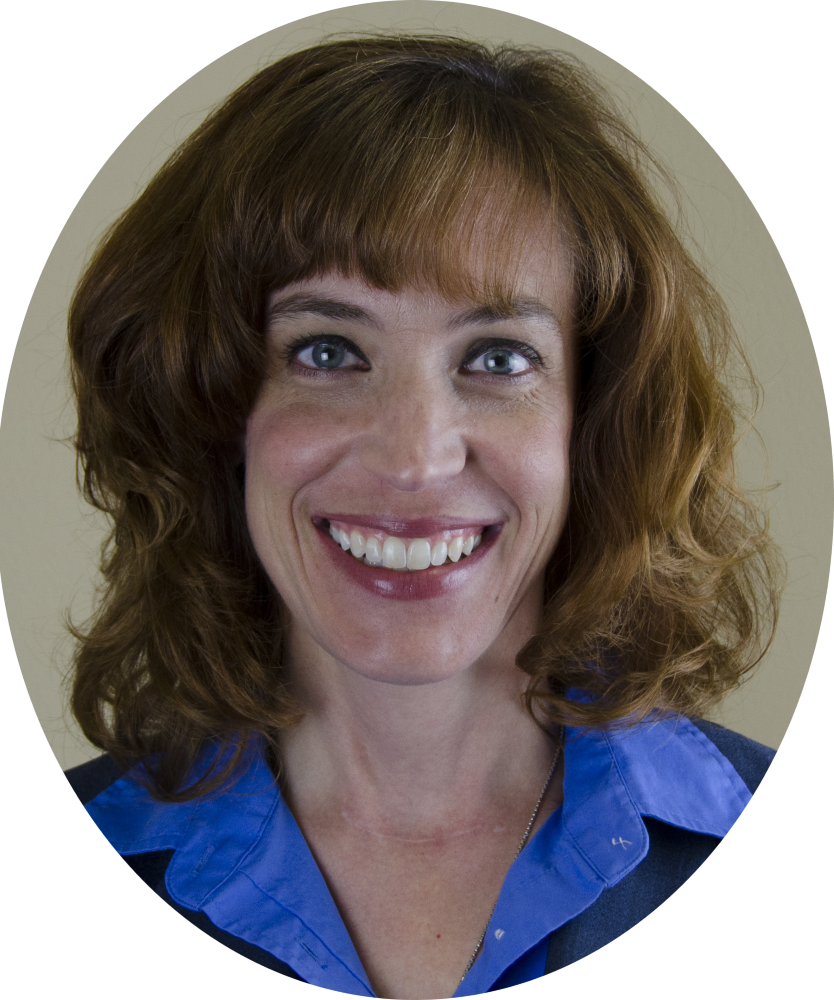
In hindsight, this sounds like the opposite of what we might have expected. With much of our focus on diabetes technology and the use of new and varied medications, all of which are important, it seems we may not be listening to what people are asking for; what their goals and targets are, how they define their problems, what the impact of diabetes on their life has been, and how they want to address these difficulties.
We clinicians are trained as “fixers” and “doers.” We see a problem and we jump to fix it – and in most cases we have the skills and knowledge to do just that. But an exclusive focus on being a “fixer” means an exclusive focus on numbers, targets and mechanisms – we often forget to acknowledge the expertise the person with diabetes brings to the table.
“Over the years of being a diabetes clinician and researcher we have learned to spend more time listening and less time “doing.”
We can get started by encouraging them to identify problems and goals on their terms that are defined by their language. We can help by adding to or modifying the direction they suggest and by providing helpful tools, techniques, and information to reach the goals that they set.
Ultimately, it is the person with diabetes who must make it all work. The key take-away is to move away from being a “fixer” and shift to becoming a “curious coach” by asking the right open-ended questions and really listening to the response.
Reinvisioning our role as a “coach” instead of a “fixer” also enables the clinician to identify the often-hidden underpinnings of barriers and the problematic emotional narratives that drive management difficulties – like feeling like a failure, pounding oneself with self-blame, believing that their glucose levels are unmanageable, feeling like a burden on their family, and feeling hopeless.
How can we expect people to make goals and effectively engage in the complex daily management of diabetes when they are experiencing these burdensome feelings and thoughts?
By addressing concerns and helping with the specifics of diabetes management problems while seeing the whole person in their life context (person-centered care), we can help people with diabetes discover that they are truly their own best fixer.
Listen to Susan address a new innovative approach to diabetes distress by joining our ReVive 5 Program.
ReVive 5 Diabetes Training Program Expert Faculty
Susan Guzman, PhD is passionate about helping to change the conversations in diabetes away from shame, blame and judgment to those based on facts, empathy, and engagement. She has been part of a joint ADA/ADCES effort to address problematic language and messages in diabetes.
Dr. Guzman is a clinical psychologist specializing in diabetes. In 2003, Dr. Guzman co-founded the Behavioral Diabetes Institute (BDI), the first non-profit organization devoted to the emotional and behavioral aspects of living with diabetes.
At BDI, she serves as the Director of Clinical Education, developing and leading programs for people with diabetes and healthcare professionals. She has helped develop and facilitates diabetes distress group interventions for two NIH-funded research studies for adults with type 1 diabetes.
This two-session training provides the essential steps to address diabetes distress combined with an innovative approach to helping people make sense of their glucose data.
The first session is team-taught by experts in the field of diabetes distress and effective communication approaches. Dr. Larry Fisher kicks off the program by describing the difference between depression and distress and interpreting Diabetes Distress screening results. Dr. Susan Guzman uses a case study approach and step-by-step communication strategies to address responses from the Diabetes Distress screening tool. This session includes an abundance of evidence-based approaches that you can apply in your clinical setting.
Coach Beverly leads the second session. During this three-hour program, Beverly describes insulin dosing strategies, meter and sensor data interpretation, and common issues encountered by people using diabetes technology. Case studies include tools to help individuals discover what changes are needed to get glucose to target, coupled with the communication skills discussed in the first session. In conclusion, the team of instructors review a case study that pulls together all the ReVive 5 elements.
Can’t join live? That’s okay. Your registration guarantees you access to the recorded version of the series, along with podcasts and resources for one full year.
Accredited Training Program:
Team of Experts:
ReVive 5 is taught by a team of 3 Interdisciplinary Experts:
The use of DES products does not guarantee the successful passage of the certification exam. CBDCE and ADCES do not endorse any preparatory or review materials for the CDCES or BC-ADM exams, except for those published by CBDCE & ADCES.
A diagnosis of diabetes often carries a significant emotional response. People with diabetes experience a myriad of feelings as they come to terms with their diagnosis and anticipate their future. As diabetes healthcare providers, we can learn to address these feelings through person centered coaching and help individuals take steps to get to their best health.
This Coaching Cheat Sheet provides a dozen simple coaching strategies for providers to help people believe in their ability to self-manage their diabetes successfully.

Using a person-centered approach, we can identify the individual’s strengths and expertise and then leverage this information to open a door of possibilities. Our choice of communication techniques can spark behavior change in people living with diabetes.
Adopting this style of communication can be a dramatic shift for some providers. Think of it this way: In usual care, the diabetes healthcare provider steers the boat, brings the fuel, and charts the course. Using the person-centered approach, the provider is simply the rudder, serving as a guide, and the individual steers.
DO: Mindfully Listen to the individuals’ problems and fears.
The first strategy is carefully listening to the person’s fears and concerns. If someone struggles with nutrition, meds, or behavioral changes, listen to the struggle, and try not to push, advise, or fix it. Listen and reflect on what you think is happening for the first few minutes.
For example, reflecting back could go something like this: “Taking medications is hard for you because you are not sure if they are really working.” Or, “It’s hard to eat more vegetables because you are a long-haul truck driver.” Or, “It sounds like you blame yourself for having diabetes.”
DO: Focus on curiosity before exploring possible changes in behavior.
With a person-centered approach, spend more time in the “curiosity” phase before moving to the “action” phase.”
We might ask, “As a truck driver, I am curious to learn more about your food choices when driving.” As care providers, we may be slightly overanxious to get to the “action” phase, which involves aspects such as action, planning, goal setting, and looking at specific foods and exercise prescriptions. It can be disorienting for providers to delay the “action” phase and spend most of the time exploring the “curiosity” phase, and there’s a perception that it takes longer. In fact, it’s probably more efficient with time. It’s a redistribution of the provider’s time in that more time is spent listening to the individual’s barriers and fears and responding to them.
DO: Listen for individual insights and ideas.
After reflecting on the person’s struggles and feelings, the next phase is the “building change” talk. It combines having the person express how a behavior change would benefit them and realistic ways to move to the action phase.
As genuinely curious providers we ask, “what are your ideas about how you can improve this situation?” Then the provider would listen carefully to what the person shares. Along with the struggles and barriers, the individual might say, “I could buy a veggie tray before heading out in my truck,” or “I could try taking my medication every day for a week to see how they affect my blood sugars.”
We want to fine-tune our listening skills so that we can pick up the scent of the trail. People often allude to what they’re willing to do and drop crumbs when they feel safe and heard during the conversation. All we need to do is pick up on the hints and encourage them down the path.
DO: Ask Questions and Collaborate.
Once the individual has identified their motivation and begins brainstorming on ways to make behavior changes, the door is open for respectful collaboration. You’ll want to explore how much change the individual is willing and able to make at that time.
To keep it real and achievable, we start with a very small step by saying, “So, you think you could buy a vegetable tray before heading out?” or “You think you could take your diabetes meds for a week to see if they work?” and let that sit; let the person describe their thoughts and feelings.
Then we might say, “How, if at all, do you see this plan fitting into your life?” We are careful to avoid any form of prescription or declaration and stick with asking questions. If the person volunteers—”I will monitor my blood sugars for a week to see if these diabetes meds work.” Or “I think I could pick up veggie trays on driving days.” We would absolutely reinforce and support these choices.
AVOID: Pressure, fix, or control.
A person-centered approach energizes individuals to take the lead in managing their condition, in step with their providers and supporters. We are careful to avoid forced solutions or controlling language. As providers, we feel like we have these great ideas that we are sure will fix the person, if only…. However, the truth is, our job is to help the person with diabetes find their own answers and solutions.
It’s time to let go of terms like “You must, you should, you have to, it’s better, it’s important, do it for me” since they fall under the category of “controlling motivation”—which can be hurtful and lead to the individual becoming defensive or shutting down. We avoid controlling language because it elicits resistance and defiance. The literature is quite clear about people doing something because someone made them feel guilty, ashamed, or pressured them. The long-term prognosis for behavior change using this approach is underwhelming.
DON’T employ Scare Tactics.
As providers, we genuinely care about people’s health and may try to energize behavior change using fear. Such as, “If you don’t get your A1C down, you are heading for dialysis or amputation.” or “Don’t you want to see your kids grow up?” We don’t generally motivate people by scaring them since research shows it is ineffective, and they may never return for that follow-up appointment.
Short-term, people are usually willing to make changes when they’re terrified—when they first get diagnosed–but that wanes in a relatively short period of time. The question is how to keep the person energized when the initial fear has worn off.
In Conclusion: Celebrate and Recognize Each Person’s Effort
Making behavior changes, like losing weight or adjusting lifelong eating habits, can be extremely difficult.
Find a way to recognize and affirm their efforts even if there is no or little change in clinical measures.
If someone’s A1C has not moved, but they took their medications daily or ate their vegetables, we say, “Wow, I want to recognize the effort you put into this.”
Respond kindly and compassionately to their disappointment, frustration, and fear. It won’t fix the immediate problem, but it helps the person feel that their effort was well-spent. It helps them feel heard instead of just “fixing it” and saying, “Okay, we’ll try a new medication.” Over time, your empathy builds bridges and trust, leading to long term collaboration and better health.
About the author – Coach Beverly has been fine-tuning her guilt-free approach to diabetes education for over 30 years and has witnessed its impact on improving well-being and building connections.
Learn more about effective communication approaches in our ReVive 5 Diabetes Training Program.
Inspired by https://www.niddk.nih.gov/health-information/professionals/diabetes-discoveries-practice/motivational-interviewing-dos-dont
You are welcome to Download Effective Person-Centered Communication Approaches Cheat Sheet to share with your colleagues.
Inspired by https://www.niddk.nih.gov/health-information/professionals/diabetes-discoveries-practice/motivational-interviewing-dos-donts
“ReVive 5” breathes new life into our relationship with diabetes, bringing a fresh perspective to both the person with diabetes and the provider.
The ReVive 5 program is built on sound research from the Embark Trial and will revolutionize your approach to diabetes self-management education.
We have reassembled the Embark training team and created a resource binder of fantastic tools that we are excited to share with you in our ReVive 5 Diabetes Training Program. You are invited to join us to learn a step-wise, proven approach to addressing hidden barriers to diabetes self-management and glucose management.
You don’t need to be mental health expert or diabetes technology wiz to join this training or to integrate these new strategies into your daily practice.
ReVive 5 uses an integrated, evidence-based approach that provides health care professionals with a realistic 5-step approach to addressing the whole person, starting with emotional distress and incorporating a unique, but integrated approach to problem-solving glucose management difficulties.
Intended Audience: This library of critical information is designed for individuals or groups of diabetes specialists, including RNs, RDs, Pharmacists, Nurse Practitioners, Clinical Nurse Specialists, Physician Assistants, and other health care providers interested in staying up to date on current practices of care for people with diabetes and preparing for the CDCES or BC-ADM Certification Exams.
Can’t join live? That’s okay. Your registration guarantees you access to the recorded version of the series, along with podcasts and resources for one full year.
Accredited Training Program:
Join us to gain the confidence and learn the skills needed to support people with diabetes to move forward in their self-management and discover the expert within.
Team of Experts:
ReVive 5 is taught by a team of 3 Interdisciplinary Experts:
The use of DES products does not guarantee the successful passage of the certification exam. CBDCE and ADCES do not endorse any preparatory or review materials for the CDCES or BC-ADM exams, except for those published by CBDCE & ADCES.